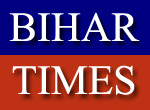New Delhi, Aug 26 (IANS) The Lok Sabha unanimously passed late Monday a path-breaking food security bill, which seeks to ensure subsidized food to 75 percent of the rural and half of the urban population, with Congress president Sonia Gandhi asserting it will "transform the lives of tens of millions".
Gandhi, who has passionately advocated the bill, complained of chest pain during the eighth hour of an animated discussion in the lower house and was driven to and admitted to the All India Institute of Medical Sciences (AIIMS) here for observation.
A short while later, after scores of opposition-backed amendments to the legislation were rejected or withdrawn, the Lok Sabha passed the bill that is expected to cover two-thirds of India's 1.2 billion people -- the mass of the poor and the impoverished.
The legislation, which virtually makes food a fundamental right in a country teeming with millions of poor, would involve an intake of 612 lakh tonnes of food annually and is expected to combat widespread hunger.
The bill is expected to be taken up in the Rajya Sabha Tuesday.
Prime Minister Manmohan Singh said after the passage of the bill: "It is yet another step of the UPA government's pro-poor policies."
In an earlier speech heard in silence in the Lok Sabha, Gandhi, 66, declared: "The food bill is meant for the less fortunate sections of our society. It is a historic step to eradicate hunger.
"It is time to send out a big message that India can take the responsibility of ensuring food security for all its citizens," she added, to loud thumping of desks by ruling coalition members.
The bill is her pet welfare legislation, which many feel may prove to be a game-changer in the next Lok Sabha election.
In part in Hindi, Gandhi explained the significance of the legislation.
"Our foreseeable future must be to wipe out hunger and malnutrition from our country.
"This legislation is only a beginning. As we move forward, we will ... have an opportunity to transform the lives of tens of millions of people."
But even as the opposition parties gave their legislative backing to the bill, there was criticism.
Both Samajwadi Party chief Mulayam Singh Yadav and Murli Manohar Joshi of the Bharatiya Janata Party (BJP) said the legislation was aimed at winning votes for the Congress.
"Who will foot the financial burden of the states? The centre should have convened a meeting of chief ministers on the bill before bringing it in parliament," Yadav said.
Joshi remarked: "This is not a food security but a vote security bill."
"Why did you not bring it before?" he asked. He accused the government of manipulating poverty estimates. "You want to show only you care for the poor and no one else."
His colleague Sushma Swaraj later said: "It is half baked and (a) weak bill."
The UPA's another ally, the Bahujan Samaj Party, extended its support to the bill, saying it will help governments address the problem of hunger in the country.
The bill proposes subsidized foodgrain for up to 75 percent of the rural and up to 50 percent of the urban population. It proposes meal entitlement to specific groups.
Eligible households would get five kg of foodgrain per person every month -- Rs.3 a kilo for rice, Rs.2 a kilo for wheat and Rs.1 a kilo for coarse grains.
In her speech, Gandhi brushed aside criticism about the legislation, saying the question was not of whether "we have the means" to enforce it but that "we will have to find the means" to implement it.
"We have to do it," she said emphatically, triggering another round of applause.
|

